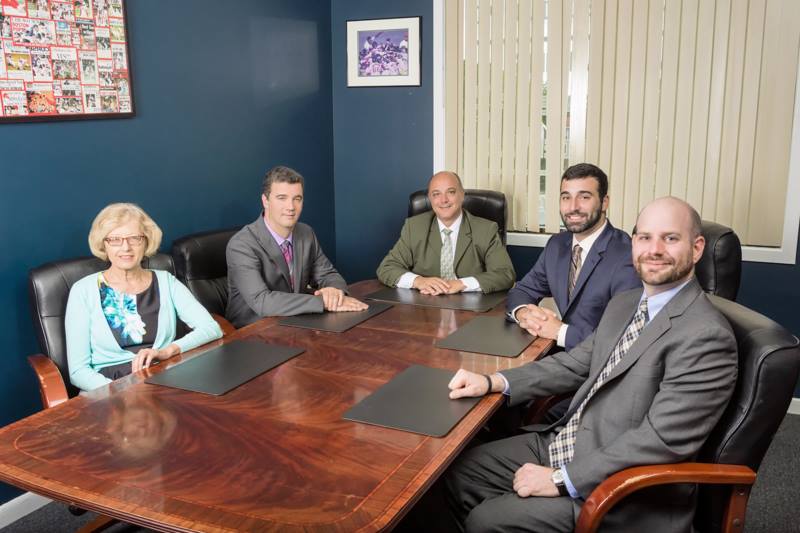Elder Law Attorney
No Fee Initial Consultation
What is Elder Law?
There’s a wide variety of matters covered by the term “Elder Law.” It is a focus on life-care planning to insure that the total health care and estate planning needs of an individual are addressed. From a multi-disciplinary perspective, that definition includes the following range of services:
- Asset Protection planning
- Medicaid Planning
- Interplay of long-term care and financial planning
- Use of Long-Term Care Insurance
- Health care decision-making and the use of advanced directives
- Estate planning and use of durable powers of attorney, living trusts, wills
- Varying forms of Real Property Ownership
- Housing Options alternatives to living alone or in a nursing home
Get a free consultation!
Elder Law Page Form
In our Practice, we and our team members have deep experience across all of the above disciplines, and can bring these skills to your service very comfortably for all concerned.
You can be confident that we understand and will sensitively and discretely meet the needs of our clients whose capacity and independence are changing. We know how important these factors are for you and your family.
By proper planning, you can mitigate the stressors of elder care and can set up supportive conditions to serve you when aging, which ultimately may even prove helpful in maintaining family harmony throughout the circle of life.
Common Elder Law Questions:
What are Federal and Massachusetts Estate Taxes?
Estate taxes may be due from the estate of the last to die of a husband and wife, or from the estate of an unmarried individual. There is a 100 percent tax exemption for bequests between spouses, but when the surviving spouse then dies, a higher, graduated tax may be owed on the entire estate if plan¬ning is not done before the first spouse dies. The federal estate, gift and generation-skipping transfer (GST) taxes formed a unified transfer tax system in 2012. The exemption levels and tax rates for each of these taxes are the same. Between 2003 and 2012, the transfer tax systems were independent of one another. Now, under the unified system, estate taxes are assessed at one’s death and gift taxes are assessed at the time a gift is made or transferred during one’s lifetime, while the GST taxes certain property that skips a generation. While the federal gift tax exemption is $5,430,000 for 2015, unlimited marital and charitable deductions may be made from this exemption.
The estate and GST tax exemption will be valued as of the year of death of the individual, as follows:
- 2009 = $3,500,000
- 2010 = Unlimited
- 2011 = $5,000,000
- 2012 = $5,120,000
- 2013 = $5,250,000
- 2014 = $5,340,000
- 2015 = $5,430,000
The current estate tax exemption for Massachusetts is $1,000,000. There is no Massachusetts gift tax, but there is much confusion about federal tax-free gifts. For federal gift tax purposes, every person can make a tax-free gift of $14,000 (subject to increases) to any individual, every year. A married couple can make joint gifts of up to $28,000 to each individual every year. If an individual or couple is not concerned about estate taxes, then gifts in excess of $14,000 per person (or $28,000 for a couple) may be given with no adverse consequences to the donor or done, up to the lifetime exemption amount (currently $5,430,000). A qualified accountant or a certified public accountant can advise you as to whether a gift tax return should be filed, and can provide you with filing instructions.
If I need a nursing home, but my spouse does not, will I still be able to receive Medicaid?
Assets/Property of a married couple are viewed as being owned by both the nursing home resident and the community spouse (“Marital Assets”). Stating that any assets are one persons or the other is meaningless in the Medicaid context. In contrast incomes of each person is considered individual, meaning the community spouse’s income is not reachable to pay for the nursing home costs of their spouse. Thus distinguishing between Assets and Income is vital. As of 2015, the Community Spouse Resource Allowance (CSRA), the amount of marital assets that the community spouse may have has been increased so that the community spouse may keep all of the couple's assets up to $ 119,220. There are various tech¬niques available to save additional funds.
Serving Belmont and MetroWest Massachusetts since 1992
Why choose DJT Law
We are a general practice office, emphasizing estate planning, probate, and all aspects of buying and selling residential real estate. We provide a unique combination of knowledge, experience and compassion where issues of elder and real estate law intersect. Our clients feel confident working with us because they know that we are committed to delivering truly personalized attention — just like law practices provided a century ago! We have been serving families in Belmont and MetroWest Boston since 1992. We look forward to serving you!








